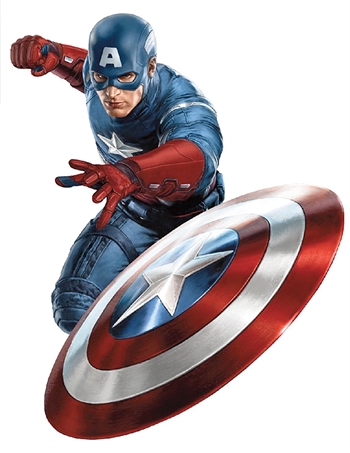August 2017 | Volume XXXV. Issue 4 »
Meet the Avengers
July 17, 2017
Christine Watkins, Illinois Library Association
At a special session at the recent American Library Association Annual Conference, Librarian of Congress Carla Hayden held a conversation with the directors of three of the country’s largest and most adventurous urban libraries: Chicago Public Library’s (CPL) Brian Bannon, San Francisco Public Library’s (SFPL) Luis Herrera, and New York Public Library’s (NYPL) Tony Marx. She began by referring to this as her Oprah moment (but promised not to make anyone cry), then called them to the stage, one by one, and referred to them as “avengers,” suggesting something other than the library stereotype.

Hayden asked each of them to explain how they came to the profession, what called them, and what makes them who they are today. These are three very different men, even on the surface—one in a coat and tie, one in a coat but no tie, the third in jeans and sneakers. Three different starting points:
Herrera talked about his fear of the “library police” when he was a boy, some unnamed force that would come to reclaim the books he’d taken home. Today, he believes eliminating barriers is the most important thing libraries can do.
Bannon thought libraries were the least likely place he’d end up, but a college professor suggested he consider library school. He believes libraries have a radical mission to connect more broadly to the world outside their walls.
Marx, former college professor and college president, is not an MLS librarian, but believes there is no other institution that can do what libraries can do in terms of education and opportunity.
Hayden asked them each to talk about the big challenges that face all libraries, but especially those that big city libraries need to address. Again, three different examples emerged of how their libraries are meeting some of those challenges and the ones that remain.
San Francisco has just announced seven-day-a-week service at ALL city libraries, dubbing it EVERY LIBRARY, EVERY DAY—talk about removing barriers. At the same time, one of the challenges that remains is making sure libraries are safe places. Herrera said, “Every public policy issue comes to our doors, and we need to be able to provide access and public safety at the same time.”
In Chicago, the focus is on the library as a place. The counter trend to flat or declining circulation is physical use of the library going up two and three times, as more people claim the space as their own. The most dramatic example is Chance the Rapper, a former teen library user, coming back to CPL as a three-time Grammy winner to host monthly events. For Bannon, this means finding ways to turn the space over to users and collaborating with non-library players and institutions in radical new ways.
And in New York, the outside perspective that Marx brings sees the library as having three advantages: there is more trust in libraries, their mission is clear; they have scale and scope, they are a place for all as society fractures into more and more segments; and they are less constrained than many other institutions in their capacity to innovate. But they are no longer the only game in town, they need to compete for users—compete with screens, with other media, for mental activity. And according to Marx, libraries are losing that battle, and will continue to do so until they learn to sell and promote themselves, using muscles they’ve not yet developed.
Three different cities, three different sets of challenges, three different avengers. Despite those differences, or maybe because of them, these thoughtful responses gave rise to a sense of power and optimism. This is not a time for platitudes and praise, but for blunt talk and big ideas. All three delivered.

 iREAD Summer Reading Programs
iREAD Summer Reading Programs Latest Library JobLine Listings
Latest Library JobLine Listings